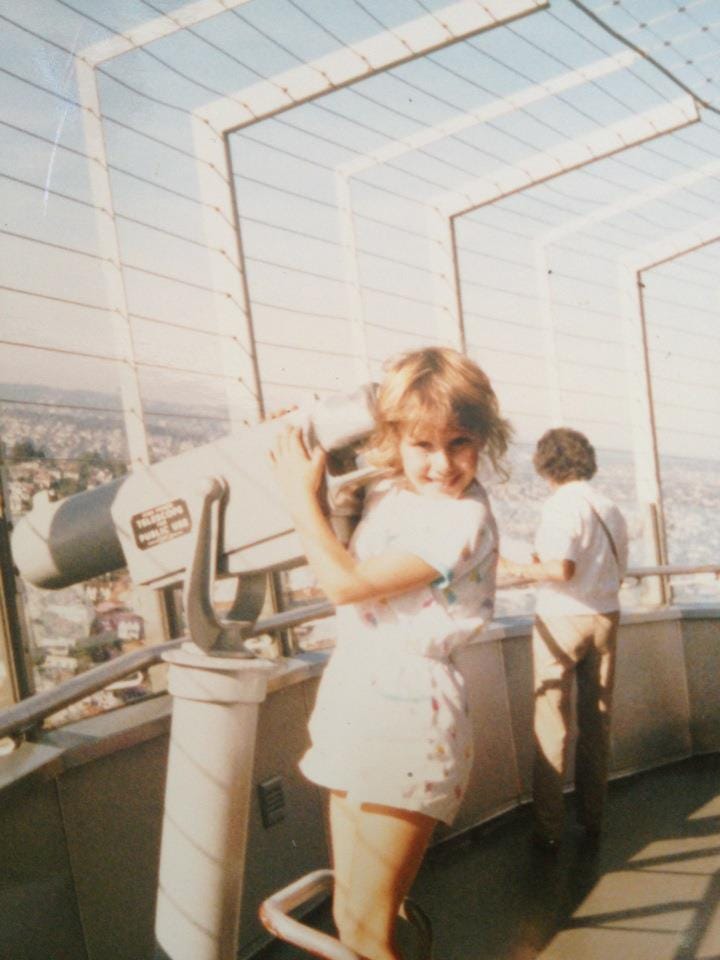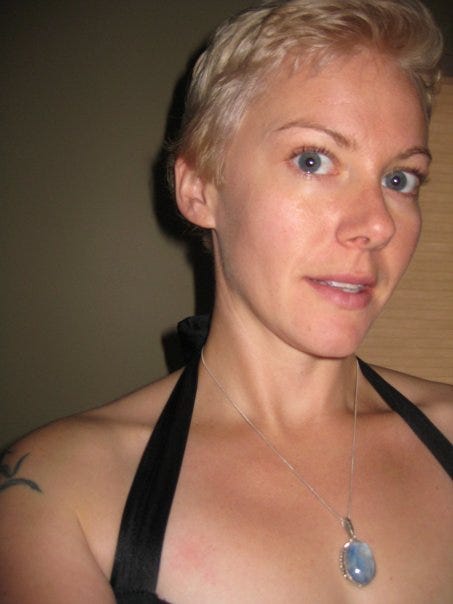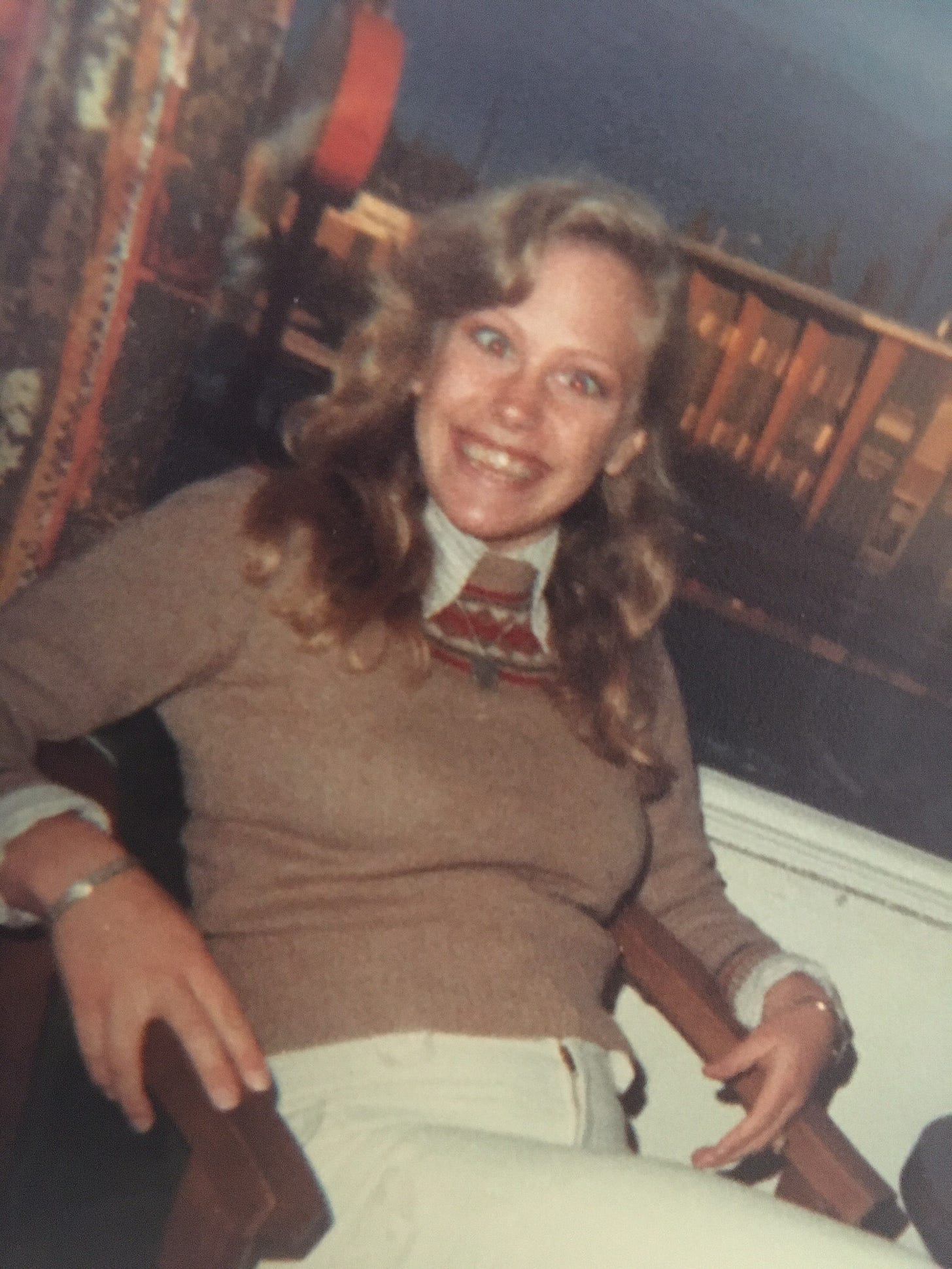(this post mentions and engages with the suicide of a loved one)
I am not unfamiliar with grief, though I didn’t know what the sensation was when I was younger and first felt it. I don’t remember life without grief. I don’t remember moments of pure happiness in my childhood. I remember, always, a sense that something was missing.
My father’s absence, maybe, was the first time I experienced grief. But he left when I was so young. Maybe, then, it was my mother’s next partner and his absence. I called him Dad, and loved him like a father.
The dim understanding of — no, reckoning with, the absence of a father-figure dug into the cavern of my chest and created a small pond, its surface smooth and mirrorlike. I shielded myself behind the mirror of the grief. My mother, whose moods were unpredictable, tolerated no sadness, for if I was sad it invoked her own grief, unfathomable and infinite in appearance (though I know now that everything is infinite yet nothing remains).
Had someone passed through my childhood before me and stolen all the beautiful things? I sought beauty and calm, yet found myself having to dig for it, both inside myself and in my surroundings. I floated beneath the water-mirror, my vision obscured, my eyes staring through who I appeared to be, organizing molecules like puzzles, eliciting varying responses in those who saw their own reflections, and, assuming always that I needed somehow to be different, reorganized. I sought no conflict, no waves. I rearranged my surface continuously, vigilantly, to hide the softest, most tender parts of myself which were also the least perfect, the least loved.
My mother left and returned, caught in the unpredictable gaze of male attention, like ocean tides moving in and out. I watched her closely for who I should be. If I am this way when she returns, will she love me, and stay? If I am that way? I swam beneath the surface of the water, diving occasionally, burying the rejected parts of myself in the perennially descending murky bottom.
I grew into an adult, but didn’t know myself; could not feel myself. I saw myself through other people’s eyes, always interpreting my sense of self through the needs of others, praise or blame, rather than sensing into my own feeling and being.
I filled myself with anything: pills, powder, booze, bodies. The only way I could feel.
When my mother left. When she pulled the trigger; I drowned.
Survival meant surfacing through the glassy lid of the pond and exposing myself.
I was not fully formed.
My skin, permeable. My thoughts and opinions, sheer.
Still, I am not fully formed.
I exist in this liminal space of unknowing.
Knowing doesn’t suit me.
I try to know, but I cannot. The fabric of knowing is itchy; intolerable.
I wonder, is accepting unknowing a way to live with grief? And is grief and integral part of understanding reality?
We can never know.
After my mother’s memorial, clumsily constructed inside her rental house in the Leschi neighborhood of Seattle, I sat with several relatives and friends of hers. They were sure they knew her. And yet, they didn’t.
But allowing themselves to accept their unknowing meant unraveling everything they thought they knew, so they held their knowing together like a ball of yarn, passing it back and forth as it loosened.
Maybe she did it because of [blank]. It had to have been [blank]. You know, she once told me [blank].
Their theories, a way of holding it all together. The perception of knowing, which was always unraveling but in this moment dangerously uncoiled.
Already, I knew the one thing I know, which is that I didn’t know. I held loose strings in my lap, tangled and fuzzy with wear.
Never would I know why my mother shot herself, on that specific night, in those specific circumstances. I am her only child and the one who knew her best, and yet I didn’t know. The notes she left, some crumpled and tossed on the ground, some laid neatly on the coffee-table: they told me so little of why or how. Only what she thought she knew, which was also so little.
Our pathways into knowing are narrow, and truth’s construction is flimsy. Because we don’t know the basic answers to the mysteries of our very existence, or why we stop existing, or what lives beyond that place.
I have imagined my mother’s life and its outcome if she had let her knowing unravel. Or allowed herself to understand that life is branches and streams and tributaries rather than a linear path, all predestined and paved.
In unknowing, we get to decide things.
Like, who we are.
But there is no final decision. That’s its freedom and its untethering.
I have imagined her setting the gun down on her side table, the one we’d hauled from apartment to apartment since my childhood. The clunk of the metal revolver against the turquoise blue tiles laid out in a square on its wooden surface. The tangy scent of her chardonnay, which sat, full, on the opposite nightstand. I never asked: was the television on? I only stood in that empty bed frame and stared at the ceiling. She remained there, but she was not there at all.
I have imagined if she had set that gun down and the next morning woken up and thrown away her notes and if I had visited her in two weeks like I’d planned. If somehow life had shifted in that imperceptible way none of us can truly name, and she had lived. Would it have been good? Would she have found her way? Or would it have been more struggle?
I imagine that it could have been good. For her, I imagine that, because I am made of her and loved her and bring her with me.
And what of the relief I felt? After she was gone?
Relief, a soft, timid gray next to the glaring gash of my rage and surprise and sadness, all varying shades of crimson, all heavy, like oil paints, drenching me. That gauzy gray of relief, like the whitish sky of an overcast Seattle day, those days my mother loved and hated. The relief, and relief’s recoil; guilt.
I drowned and surfaced and was nothing, and the world was terrible and new and foreign, even all the places I thought I had known so intimately. I searched for familiar places and, upon finding them, stared into them as if I were watching myself in a film, staring into something that no longer existed and would never again exist as it was. Because I was irrevocably changed, and there was nothing I could do. Each day I clutched each moment like a handhold, pulling me somewhere different. But I didn’t know where. I only knew: I must keep going.
Or, rather: I must stay here.
And here, in this moment, I arrive to say: we must keep going.
Into the unknowing.
Into whatever is coming.
Because time isn’t like we think it is. We are not stepping into anything. It steps into us, and passes through us, and is gone. And each moment a new moment arrives inside of us, and that’s truly all we have. For that moment.
That’s enough, right? In this moment? That all we have is this moment?
Say it with me, if you want to.
It’s enough.
I don’t know your grief, but I do know that you are not alone in your grief.
Not long after my mother died, I watched this film called Rabbit Hole, about two parents grieving the loss of their son. I found this particular scene profound and comforting, and have used its metaphor ever since. The brick and the grief and the way it changes.
Thanks so much for reading. If you appreciated this post, please share it and/or become a paying subscriber to support my work.
Love,
Stacy








There are so many sentences that will stay with me for a long time. I imagine that accepting the unknown is one step closer to lightening the weight of the brick in your pocket.